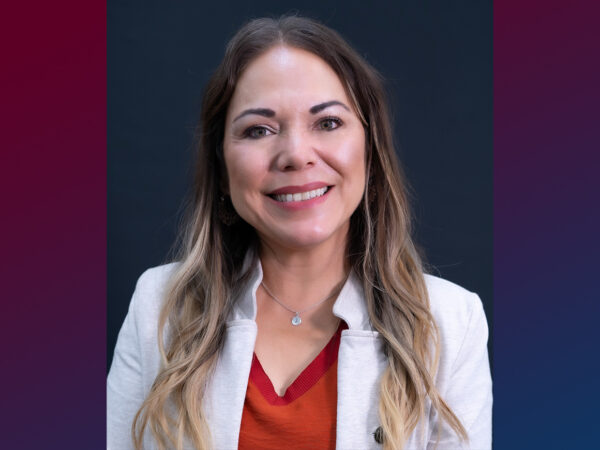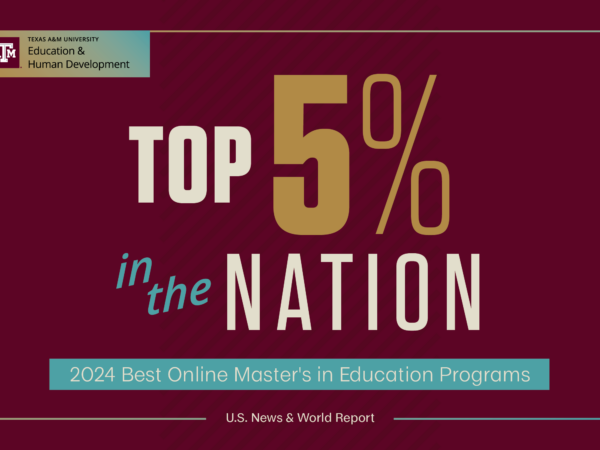
Shadow Education’s Impact On Student Achievement
It’s a multi-billion dollar industry but one we know very little about. That’s something Matthew Etchells is trying to change.
Etchells, a doctoral student in curriculum and instruction, is focusing his dissertation research on shadow education, or private supplementary tutoring. The metaphor is used because this type of tutoring mimics the mainstream school system. If a new curriculum or new testing is introduced in a school district it also shows up in the tutoring.
Shadow education is growing around the world but reliable data is difficult to come across. Students hesitate to reveal how much tutoring they receive, partly because they feel shy about seeking extra help and many tutors are not registered as an L.L.C.
Etchells’ interest in shadow education research began in 2004 when he was working in the United Arab Emirates. He served as dean of students for about 550 students and also taught a course in test preparation. He started to notice his students were giving him answers for concepts that had not yet been discussed in class.
“I realized there was another player in the game. Someone was having an influence here and I knew it wasn’t the parents,” explained Etchells. “The students would also sometimes come in late to class, leave class early or not come to class at all. They would tell me they were going to a tutor.”
After more than a year of trying, Etchells was finally able to schedule a meeting with the tutor his students were using.
“We met in the corner of a coffee shop. He sat with his back to the wall so he could see the entire café we were in. He would not let me record anything. I had to take hand notes. He was really aloof about some questions and got really short with his answers. I tried to follow up after our interview and he wouldn’t respond.”
The tutor claimed he was able to raise student SAT scores by 300-400 points. However, Etchells’ research found there was no significant gain in reading and math. He did find a gain in writing of 84.7 points, nowhere near the numbers the tutor was advertising. The problem is, there is no transparency and accountability of these tutoring programs.
“In the school system, students are provided with a meal in the form of the curriculum. Teachers are doing their best to use constructivism and work on that child’s zone of proximal development to scaffold. They understand when you can be abstract and when you need to be concrete. Then, the students go to private tutoring for a snack. We don’t know what they’re getting because there is no accountability and transparency.”
For those students that tutoring does help get into a university, they run into another issue. That snack they have been getting for years goes away and they sometimes struggle to keep up on their own. Not only do they struggle in their education, they also seem to be challenged in other areas of their lives because, according to Etchells, so much of their early education was focused on spending every spare minute on their tutoring.
“Because students are under so much pressure, we’re seeing an increase in anxiety and student suicide – all of this coming from the idea of more, more, more. Children don’t have a chance to recharge their batteries and recuperate,” said Etchells. “We have turned something that should be quite enjoyable into something that is more like the idea of factory-producing children. Until we get away from that, the tutoring system will keep expanding.”
Despite the lack of accountability and transparency, parents around the world continue paying thousands of dollars for their children to be tutored. Etchells believes this is because parents feel inadequate, they feel like they are a bad parent if they do not help their child succeed in every way.
The global tutoring market is expected to surpass $102.8 billion by 2018. It is a market that is almost one-sixth the size of Apple, but it’s an industry we know little about.
A tutor Etchells spoke to for his research charged $272 per hour for an average of $1,377 per student per week. For one group of students, the total was just over $26,000 tax free. By tutoring just two groups of students, a tutor can make more than many teachers’ base salary.
“We’re taking something which is public and free and making it private and for-profit. When we move to the shadow education system, massive inequity kicks in because now it’s for-profit so the agenda for the tutor is to make money. Pass and fail are just icing on the cake. The key piece is to make money,” explained Etchells.
Etchells highlighted the fact there are legitimate tutoring groups within schools and other institutions – such as the Reads and Counts program in the College of Education and Human Development. “It’s not shadow education, it is a service provided within the institution for the betterment of the institution’s students. There is transparency, there is accountability; tutors are trained.”
Etchells also says it is important to note there is a sliding scale when it comes to tutoring centers. The Reads and Counts program has accountability and transparency, tutoring centers – while registered and structured – have less accountability and private tutors – who tutor in addition to their teaching jobs or to make extra money in college – have no transparency and accountability.
Etchells plans to continue his research on shadow education while also digging into diploma mills and ghost writers – what he is calling “submerged education” research. His hope is to make educators and policy makers more aware of the potential impact.
“The shadow education market in Asia is huge and it is spreading this way. It is coming through Europe and it is coming into America. We have to be aware and become more cognizant of the external factors that are having an internal influence,” explained Etchells. “We need to understand the environment that we live in and really start to get some control on the tutoring system so we know what the kids are consuming. We should be spending a lot more time and be a lot more concerned with what is going on in our children’s minds.”
About the Writer
Ashley is the Media Relations Coordinator and responsible for news coverage in the Department of Teaching, Learning and Culture as well as the Department of Educational Psychology.
Articles by AshleyFor media inquiries, contact Ashley Green.














